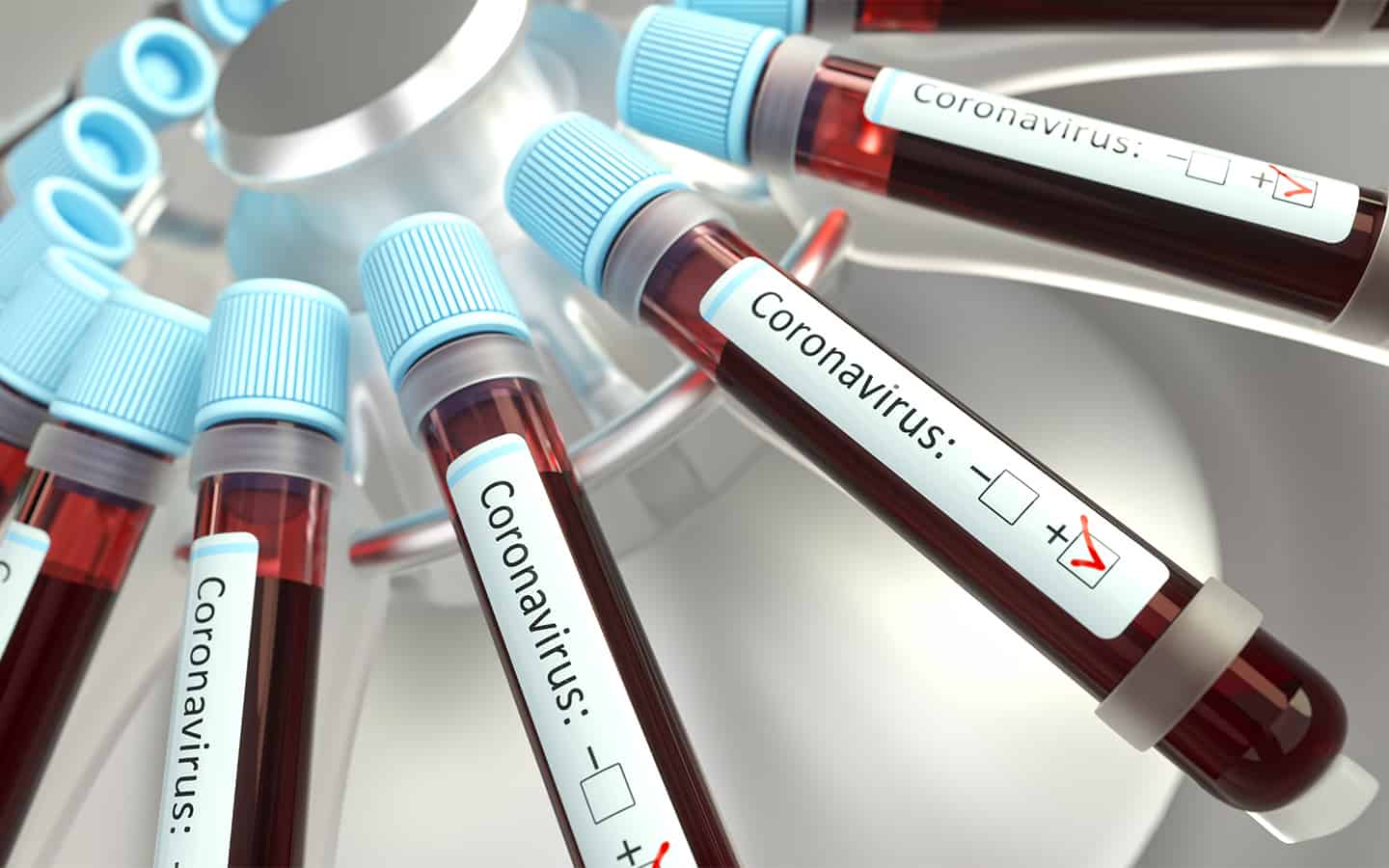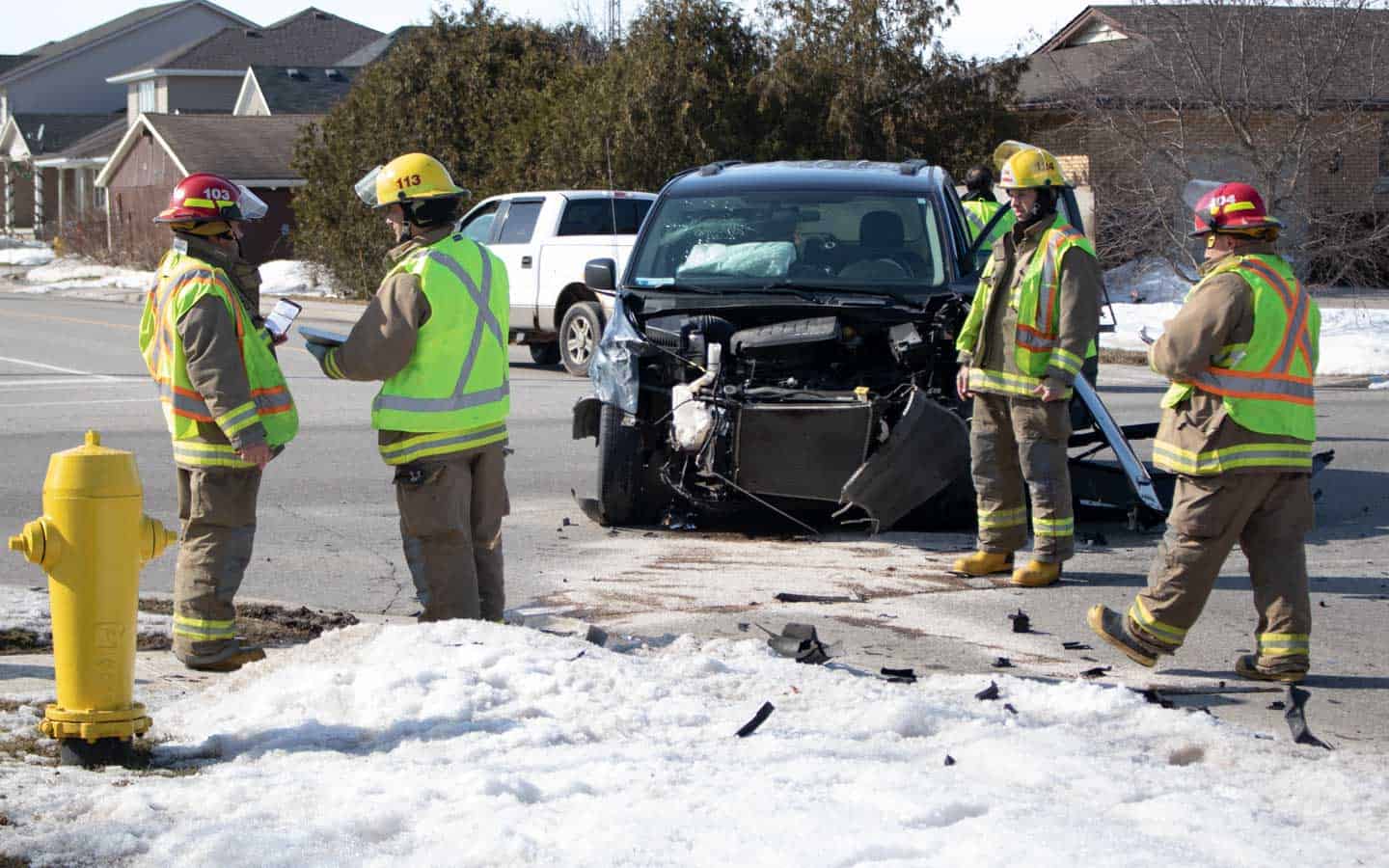Dr. William Ciccotelli, medical director of infectious prevention at St. Mary’s General Hospital, alongside Dr. Hsiu-Li Wang, acting medical officer of health for the Region of Waterloo Public Health and Emergency Services, at a news conference Mar. 5 following the first case of the coronavirus (COVID-19) in the region.
Waterloo Region has its first case of the coronavirus, officials announced today (Thursday), downplaying any risk to the public.
The Region of Waterloo Public Health and Emergency Services held a press conference in Kitchener Thursday to announce the arrival of the novel coronavirus to the area.
“The case does not represent an increased risk to residents in Waterloo Region,” said Dr. Hsiu-Li Wang, acting medical officer of health for the Region of Waterloo Public Health and Emergency Services, at a hastily called news conference.
The local case involves a woman in her 50s who recently returned home from a trip to Europe and tested positive for COVID-19. The subject had experienced mild symptoms of the virus upon two flights heading back towards Canada: Air Portugal flight 827 from Milan to Lisbon and flight 259 from Lisbon to Toronto on March 3. After arriving at Pearson airport in Toronto, the woman took private transportation to Grand River Hospital in Kitchener. The patient was discharged from the hospital the same day. Currently, the woman is in a period of self-isolation.

Dr. William Ciccotelli, medical director of infectious prevention at St. Mary’s General Hospital, joined Wang in answering questions about the case.
The woman was dismissed from Grand River Hospital still displaying symptoms, whereas some 400 citizens returning from China’s Wuhan Province were forced into a two-week quarantine period without displaying symptoms.
“We help to assess to make sure she does all required hospital admission. We are there to do the proper testing that’s required. And then based on the assessment, the communication with Public Health [she was dismissed],” said Ciccocetelli.
Addressing the possibility of more cases, Wang said officials would be watching for any spread.
“Assuming that we have additional cases, I think what we can expect that the large majority of the cases will have a mild amount of symptoms, and will be able to safely recover at home. For a small minority that will require more elevated levels of care, such as hospitalization.”
Both the area woman and a Toronto man in his 60s who also tested positive on Tuesday displayed mild symptoms.
“We’re working with healthcare providers to make sure that those people who need higher levels of care are able to access that care in the right environments like the hospital and be treated appropriately. So it’s really going to focus on making sure that those who need care the most will get it and then the others can continue to recover,” said Wang of preparations for cases that aren’t minor.
There are no plans, however, to limit public movements, particularly at large events such as the upcoming Elmira Maple Syrup Festival, said Wang, counselling that people take precautions.
“At this point in time, we are recommending that people continue to practice those cautions that we’ve been talking about for a while – washing your hands and staying at home if you’re sick,” she said.
In general, officials are asking people to think about what they can do to prepare themselves if they were to become ill and would need to stay home. Wang also said people should be asking themselves questions about their emergency preparedness. “Do they have [a] sufficient supply of their medications? Do they have enough of the essential, food and other supplies, to be able to get through a period where they may have to be at home caring for themselves or for their children?”

Wang advised people to remain calm, offering “reassurance to the public because a lot of people are concerned and now with this case, they’re going to be more concerned.”
Although the case was not anticipated, Wang said “we have a solid local health-care system, and we are prepared.”
She noted the public would be informed if there’s any change in the patient’s condition, along with any new cases that might occur.









